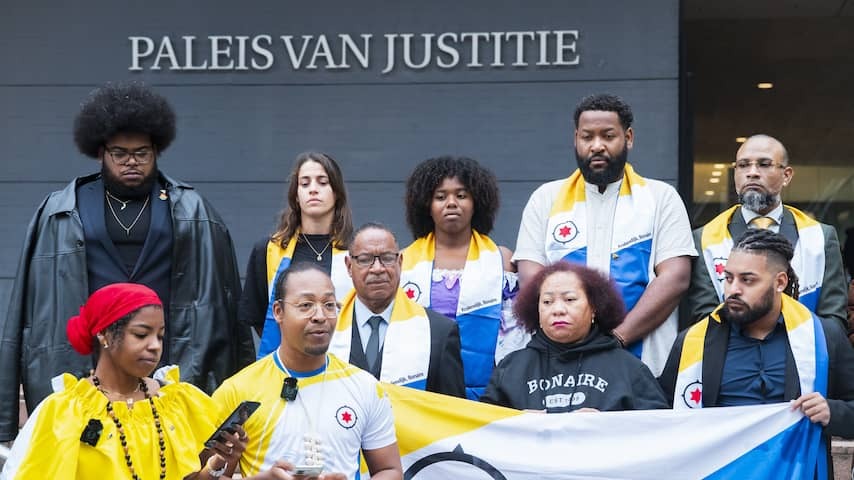
Greenpeace and the Dutch State Faced Each Other in Court on Tuesday and Wednesday. The Environmental Organization Demands That The Netherlands Reduce Emissions to Zero As Quickly As Possible to Protect the Caribbean Netherlands. The State Relies on European Goals.
Ten Years After Urgenda, Greenpeace is Facing the Dutch State in a major climate case. The Environmental Organization Filed the Case on Behalf of Eight Residents of Bonaire, A Special Municipality of the Netherlands Since 2010.
The Question That Three Judges Will Consider is: Is the Government Doing Enough to Protect the Residents of Bonaire, A Caribbean Island That Belongs to the Netherlands, From Climate Change? The Judges Must also Formulate a Legal Answer to the Question of Who Exactly Is Responsible for Climate Measures.
Opinions on this are Sharply Divided, As Became Clear in Court on Tuesday. On the First Day of the Hearing, Greenpeace Will Speak First. In a plea of more than two hours, The Two Lawyers of the Environmental Organization Argue That The Netherlands Could and Should Be Climate Neutral by 2040. Currently, That goal is set for 2050.
Greenpeace Cites Research that shows Climate Neutral Earlier is feasible and just, althegh it will be accompanied by “major challenges”. Accordance to the Environmental Organization, The Netherlands Must Must “A Fair Contribution” and MUST STOP EMITTING.
Currently, the Chance That The Netherlands Will Meet Its Own Climate Goals for 2030 is less than 5 percent, Accordination to the Climate and Energy Outlook (KEV) of the PBL in September.
‘Political Choices are not up to the court’
“The State Recognizes The Negative Consequences of Climate Change All over the World and in the Caribbean Netherlands.” With that, The Government Lawyer OpenS His plea. But in His defense, he says that the Netherlands is not violating any laws or falling short.
The Netherlands Falls Under the European Union and must adhere to the European Climate Law, which the EU must be climate neutral by 2050. The State Does Not Believe that It is Obliged to set a more Ambitious goal. “That would require a very consultable effort.”
Moreover, the law must be Changed for this, is the argument of the state. That is a task of the government and parliament. “It is not up to the court to make political choices,” Said the Lawyer.
Incidentally, Judges can Order Governments to take action based on the law. This has happened before. In 2019, Urgenda won the Climate Case Against the Dutch State. The Supreme Court Ruled that the State had to do more to limit the emission of Greenhouse Gases.
In The Courtroom on Tuesday Were also about ten people from Bonaire. Formally, The Case Begen Two Years ago with a letter they wrote to the Dutch Government. They asked the state to do more and to protect them better, but accordance to them this has not happened. That is Why Greenpeace Has Continued the Case on Behalf of the Residents.
On Bonaire, The Contheques of Global Warming Are NoticeBey. The Island is suffering from Extreme Weather, Damage to Ecosystems and Sea Level Rise. Bonairians Told This in Court on Tuesday, prior to the pleas.
Onnie Emerenciana is a farmer and talks about how his land and nature are suffering from the increasingly warmer and more Erratic Weather. “Our ecosystem is Succumbing to Drought and Heat. And when it finally rains, it comes pouring down.” He sees the consequences of global warming with his own eyes. This is caused by Global CO2 Emissions, in which Bonaire has a very limited share.
“We have the same rights under the Constitution as Residents of European Netherlands,” Adds Angelo Vrolijk from Bonaire. “The Netherlands is Known for its water management and delta works. Why is that expertise not be used on bonaire?”
He ends with the words (in Papiamento): “We are not asking for charity, we demand justice.”